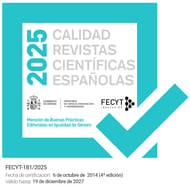Analogía morfológica y marcaje fonológico en los verbos incoativos del catalán
Resumen
La analogía entre formas de un paradigma morfológico puede dar lugar a alomorfos marcados desde el punto de vista de la fonología. En este estudio nos centramos en el análisis del incremento incoativo -isc- [ísk] que se puede realizar en el catalán de Valencia con una sibilante palatal en los verbos incoativos de la tercera conjugación: por ej., servixc [seɾvíʃk] ‘sirvo’. A pesar de que el grupo consonántico [ʃk] se considera marcado fonológicamente, esta forma palatalizada parece haber sustituido a la forma tradicional del catalán occidental con una sibilante alveolar -isc- [ísk], por analogía con formas del presente de indicativo como servix [seɾvíʃ] ‘sirve’. Los resultados del estudio indican que, a pesar de que las formas con -ixc- son muy frecuentes en la documentación escrita, no todos los hablantes presentan realmente una pronunciación palatal de la sibilante del grupo -isc- y que, en los casos en que se detecta la palatalización analógica en la pronunciación, la realización de la sibilante se encuentra a medio camino entre una sibilante alveolar y una sibilante palatal, en una especie de compromiso entre las restricciones fonológicas y las morfológicas.
Los trabajos publicados en esta revista son propiedad de sus respectivos autores y autoras, quienes conceden a la Revista de Filología de la Universidad de La Laguna el derecho de primera publicación, tal y como se recoge en nuestra Política de derechos de autoría.









